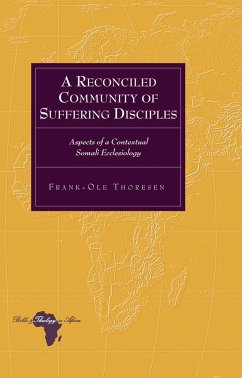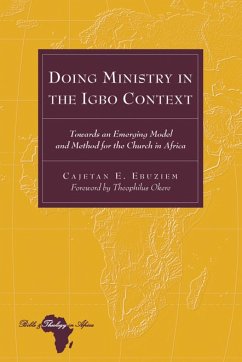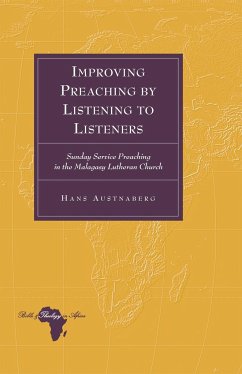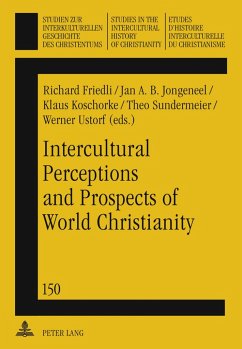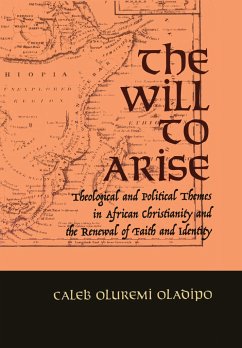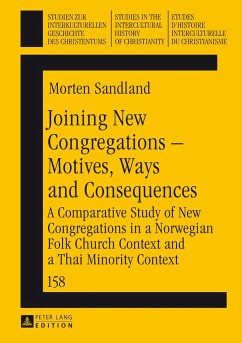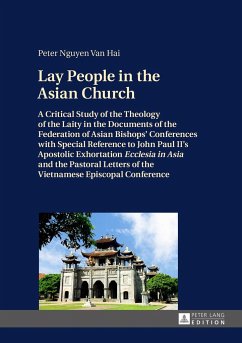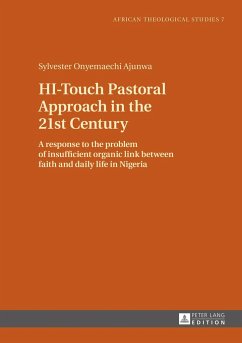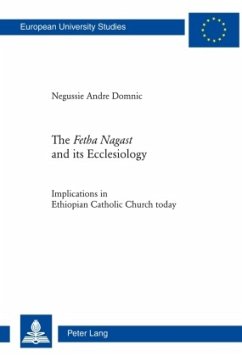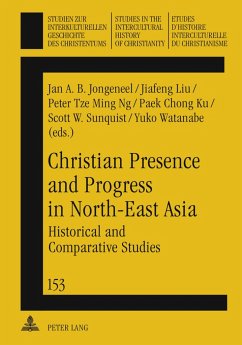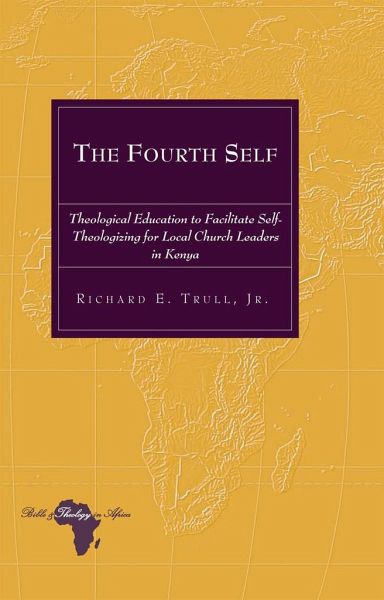
The Fourth Self
Theological Education to Facilitate Self-Theologizing for Local Church Leaders in Kenya

PAYBACK Punkte
0 °P sammeln!
The research and reflections in The Fourth Self come from the author's almost thirty years of interaction in mission endeavors, primarily in Kenya, starting with an evangelism and church planting emphasis, to maturing young churches, and then various methods of leadership development. Much of what the author has learned on his pilgrimage in search of the fourth self, he owes to his Kenyan brothers and sisters with whom he has shared this journey. The Fourth Self will assist the reader in sharing in this journey more fully. Given the influence of the Western theological heritage in East Africa...
The research and reflections in The Fourth Self come from the author's almost thirty years of interaction in mission endeavors, primarily in Kenya, starting with an evangelism and church planting emphasis, to maturing young churches, and then various methods of leadership development. Much of what the author has learned on his pilgrimage in search of the fourth self, he owes to his Kenyan brothers and sisters with whom he has shared this journey. The Fourth Self will assist the reader in sharing in this journey more fully.
Given the influence of the Western theological heritage in East Africa, it is important that the value of the theological education be evaluated from the perception of the participants in the educational process. This intercultural pilgrimage has been in the making for many decades, and it has been a journey for both African and Western participants as they both learned from and taught one another. This volume articulates the voices of the participants in a theological process while engaging their cultural contexts with the gospel, searching for what Paul Hiebert calls the «fourth self», self-theologizing. Furthermore, it evaluates which factors in the theological education process and ministry experiences contributed significantly to the leaders developing their own theological understanding of scripture as it applies to their cultural and ministry contexts, that is, practicing the fourth self. Professors, especially cross-cultural theological educators, will find this text to be useful in delving into the always dynamic cauldron of contexualization, self-theologizing, and global theologizing. In addition, this volume sets a solid foundation for improvements in ministry, theological interchange, and theological education in Africa.
Given the influence of the Western theological heritage in East Africa, it is important that the value of the theological education be evaluated from the perception of the participants in the educational process. This intercultural pilgrimage has been in the making for many decades, and it has been a journey for both African and Western participants as they both learned from and taught one another. This volume articulates the voices of the participants in a theological process while engaging their cultural contexts with the gospel, searching for what Paul Hiebert calls the «fourth self», self-theologizing. Furthermore, it evaluates which factors in the theological education process and ministry experiences contributed significantly to the leaders developing their own theological understanding of scripture as it applies to their cultural and ministry contexts, that is, practicing the fourth self. Professors, especially cross-cultural theological educators, will find this text to be useful in delving into the always dynamic cauldron of contexualization, self-theologizing, and global theologizing. In addition, this volume sets a solid foundation for improvements in ministry, theological interchange, and theological education in Africa.





